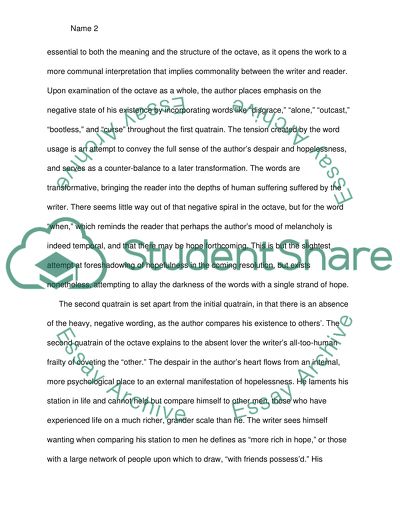Cite this document
(“The Empowered Voice of Absence - Shakespeares Sonnet Number 29 Assignment”, n.d.)
Retrieved from https://studentshare.org/literature/1447780-critical-analysis-assignment-for-english
Retrieved from https://studentshare.org/literature/1447780-critical-analysis-assignment-for-english
(The Empowered Voice of Absence - Shakespeares Sonnet Number 29 Assignment)
https://studentshare.org/literature/1447780-critical-analysis-assignment-for-english.
https://studentshare.org/literature/1447780-critical-analysis-assignment-for-english.
“The Empowered Voice of Absence - Shakespeares Sonnet Number 29 Assignment”, n.d. https://studentshare.org/literature/1447780-critical-analysis-assignment-for-english.


